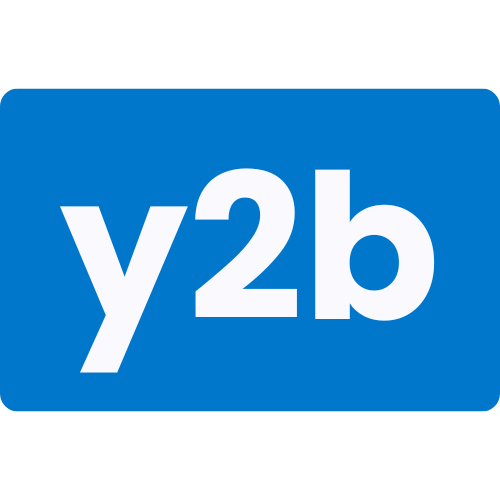Click anywhere to edit!
Navigating the Freelance Landscape: Insights from Industry Experts
Author: Shawhin Talebi (Shaw)
Freelancing has become a popular alternative to traditional employment, especially in the wake of the COVID-19 pandemic and the subsequent Great Resignation. In a recent panel discussion, I had the opportunity to connect with three seasoned freelancers who shared their journeys, insights, and predictions for the future of freelancing. Here’s what we discussed.
Meet the Panelists
Nick
Nick holds a bachelor’s degree in computer science from Cornell University and a PhD from the University of California, Irvine. After working as a research scientist at MIT's Lincoln Lab, he transitioned into the freelance world, focusing on data science and software engineering.
Matteo
Matteo started with a bachelor's degree in electrical engineering and held various data science roles at companies like Capital One. He has since pivoted to become a financial planner, specializing in helping freelancers manage their finances.
Dimitri
Dimitri has a background in business administration and marketing, along with a master’s in business analytics from University College London. He is a successful freelancer who also runs a platform called DataFreelancer.com, where he shares his expertise with those looking to break into the freelancing space.
The Freelancing Boom: A Temporary Trend or a New Normal?
The panelists weighed in on the shifting landscape of freelancing. Many people have turned to freelance work due to layoffs or the allure of remote work. The question arose: Is this a temporary trend or a fundamental shift in how we work?
-
Nick pointed out that many startups prefer freelancers for flexibility, often hiring for specific hours instead of committing to full-time employees. This approach benefits both businesses and freelancers, allowing for a more adaptable working environment.
-
Matteo added that the pandemic has made companies more comfortable with remote work. They now trust freelancers to deliver results without requiring physical presence, marking a significant shift from pre-COVID norms.
-
Dimitri emphasized the need for freelancers to build small teams. As projects become more complex, having a supportive network can help freelancers navigate challenges better than going solo.
Navigating Client Relationships
Managing client relationships is a significant challenge, especially when clients may not fully understand what they need. The panel discussed strategies for establishing clear communication and expectations from the outset.
-
Nick mentioned that many clients approach freelancers with vague ideas based on buzzwords. He stressed the importance of scoping projects clearly and understanding the client’s actual needs.
-
Dimitri echoed this sentiment, noting that clients are often unsure about what being data-driven means. He finds success in educating clients through the scoping process to ensure expectations are aligned.
-
Matteo highlighted the importance of building trust. He suggested asking open-ended questions to help clients articulate their needs, transforming the conversation into a collaborative exploration of solutions.
The Importance of Contracts
Contracts can be a minefield for freelancers, with many containing unfavorable clauses. The panelists shared their experiences and tips on what to watch out for.
-
Nick emphasized understanding the terms related to liability and jurisdiction. He advised freelancers to be cautious of contracts that impose unreasonable risks or penalties.
-
Matteo added that some clients might have unrealistic expectations regarding timelines and deliverables. Setting clear boundaries and communicating feasible outcomes is essential.
Long-Term Goals as a Freelancer
The discussion shifted to long-term career goals. Freelancing offers unique opportunities and challenges that differ from traditional corporate paths.
-
Nick expressed his desire to move toward teamwork and project management roles while exploring entrepreneurial ventures. Freelancing allows him to pursue personal projects alongside client work.
-
Matteo shared his journey in financial planning, emphasizing the importance of maintaining flexibility while building a sustainable client base. He noted that high hourly rates in freelancing can lead to a better work-life balance.
-
Dimitri reflected on the diverse skill set freelancers develop, often beyond their primary expertise. He enjoys the strategic aspect of consulting and aims to educate clients on leveraging data effectively.
Building a Client Pipeline
For those starting in freelancing, building a client pipeline can be daunting. The panelists shared tips for establishing a steady flow of work.
-
Nick advised focusing on gaining initial reviews on platforms like Upwork, as these reviews enhance credibility and attract more clients.
-
Matteo emphasized networking and relationship-building. Reaching out to past colleagues and maintaining connections often leads to referrals.
-
Dimitri highlighted the value of content creation. Sharing knowledge through articles or videos positions freelancers as experts in their field, attracting inbound inquiries.
Conclusion
Freelancing offers a unique blend of flexibility, opportunity, and challenge. As the landscape continues to evolve, staying adaptable and maintaining clear communication with clients will be key to success. Whether you’re just starting or looking to scale your freelance business, the insights shared by these experienced panelists can guide you on your journey.
If you’re interested in diving deeper into the world of freelancing, consider joining a community or participating in discussions like these to learn from others and share your experiences. Happy freelancing!


